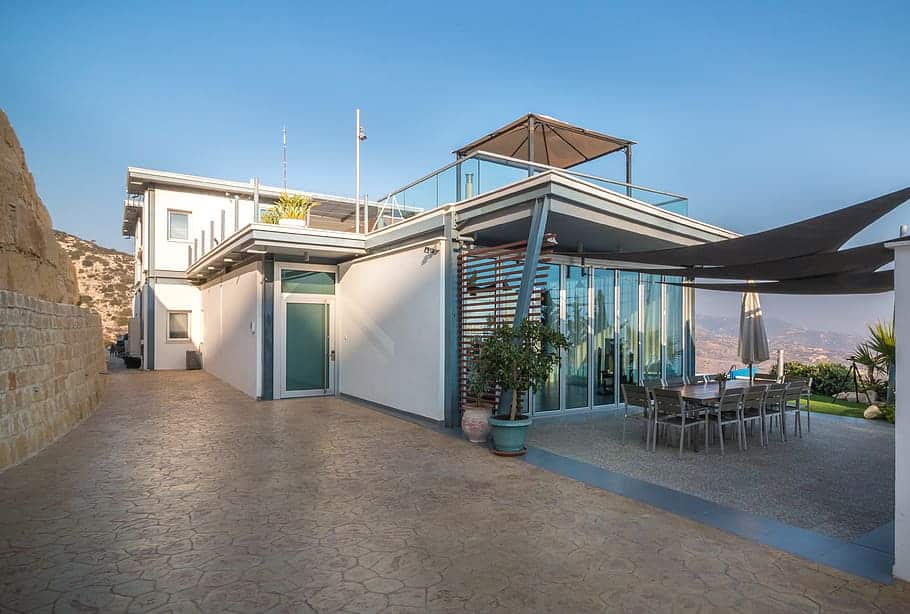The Role of Foreign Buyers: Trends, Regulations, and Impact on Cyprus Real Estate in 2025
Cyprus has long attracted international purchasers, yet 2025 feels different. A mix of renewed visa schemes, tighter rules for non-EU nationals and a maturing domestic market has altered the balance between local demand and foreign capital. The following overview sets out how overseas interest is shaping Cyprus properties market this year, drawing on the latest market data and regulatory updates.
A market still climbing – but no longer sprinting
House-price growth remains positive, although the pace has eased since the post-pandemic surge. Central Bank statistics show the overall Housing Price Index rising 4.8 per cent year-on-year in the first quarter of 2025, up fractionally from 4.5 per cent in late 2024. Notably, detached houses rose 5.6 per cent while apartments cooled to 3.5 per cent, hinting at buyers choosing extra space over city-centre convenience.
Sales volumes, however, tell a livelier story. By the end of May the Land Registry had logged 2,812 transactions by overseas purchasers, a 15 per cent jump on the same period last year. Paphos leads the league with 901 foreign deals, closely followed by Limassol on 849, while the capital, Nicosia, trails at 242. In short, demand is softening in price terms yet broadening across districts – a sign of a market finding its level rather than overheating.
Who is buying – and why?
European Union citizens face few hurdles when buying property in Cyprus and continue to make up roughly half of all international purchases. They are joined by Ukrainians, Israelis and British retirees seeking a warmer VAT and tax climate. Non-EU nationals, especially from the Middle East and Asia, are drawn by residency incentives: a property purchase of at least €300,000 can still deliver permanent residence, subject to income thresholds, with citizenship available after eight years of physical presence.
Meanwhile the relaunched Digital Nomad Visa – reopened in March with the cap doubled to 1,000 permits – is luring remote workers on upper-middle incomes. Applicants need to prove net monthly earnings of €3,500 and comprehensive health cover, but the two-year renewable permit removes the need to rely on employer sponsorship. Tech contractors, designers and other footloose professionals are already appearing in co-working hubs from Larnaca to Limassol, renting first and often buying later. Their presence is one factor behind the buoyant long-term rental market, cushioning yields even as capital growth steadies.
More: Limassol’s Real Estate Prospects: 2025 and Points to Consider
Rules every non-Cypriot buyer should know
The regulatory backdrop has grown more exacting. EU nationals may purchase without restriction, yet third-country citizens must still secure Council of Ministers approval, which limits freehold land to three donums (about 4,014 m²) per applicant. A bill currently before parliament aims to automate the permit and introduce clearer disclosure requirements. VAT on first-time homes remains 5 per cent on the first 130 m², rising to 19 per cent thereafter, although Brussels has pressed Nicosia to target the relief more tightly at permanent residents.
Buyers of Cyprus properties for sale should also note the sunset clauses attached to the old citizenship-by-investment regime, closed in 2020 after EU criticism. Any marketing that still trumpets “passports for sale” is outdated. Reputable Cyprus real estate agency teams now emphasise transparent residency programmes and warn clients away from speculative resale guarantees.
Market impact: winners, losers and the middle ground
The headline effect of sustained foreign demand is evident: property prices exceed pre-2010 peaks in coastal districts, and construction cranes dot the Limassol seafront once more. This is why Limassol is the best place to buy property in Cyprus.Yet the influence runs deeper. Local developers increasingly tailor layouts to overseas preferences – open-plan kitchens, home-office nooks and energy-efficient glazing. This shift aligns with EU directives on green building as well as buyer expectations.
On the flip side, first-time Cypriot buyers struggle with a deposit gap. Average wages lag behind house-price inflation, prompting government schemes that guarantee up to 80 per cent of mortgage value for young households. If these fail to scale, the island risks a two-speed market: high-end villas priced in foreign currency and a squeezed domestic segment.
For investors weighing on the cost of buying property in Cyprus, rental performance is as relevant as capital appreciation. Tourism surpassed 4 million arrivals in 2024, and early airport passenger numbers suggest another bumper year. Short-let platforms remain regulated but legal, provided an Airbnb licence is obtained. Gross yields in the 5–6 per cent range on well-located flats still outshine many Western European benchmarks, although a gradual release of new stock could clip returns over time.
Practical considerations for 2025 purchases
Exchange-rate swings have gifted dollar-based buyers extra spending power, yet EU banks in Cyprus usually lend in euros only. Interest rates hover between 3.5 and 5.5 per cent, depending on tenure and loan-to-value ratios. Survey fees, legal checks and insurance add roughly 4 per cent to the price; stamp duty tops out at 0.20 per cent on values above €170,000, and transfer fees are discounted by 50 per cent where VAT has been paid.
An experienced conveyancer helps navigate title-deed delays, zoning quirks and co-ownership rules on common areas. Many overseas purchasers turn to bilingual Cyprus real estate agents with in-house legal teams capable of handling power-of-attorney sign-offs while the client stays abroad. For buyers preferring a one-stop service, franchise networks and boutique consultancies compete vigorously – the hallmark of a maturing sector keen to project credibility.
Outlook: steady rather than spectacular
Most analysts anticipate single-digit price growth for the rest of 2025. Supply pipelines in Larnaca’s port-side neighbourhoods and western Limassol should ease pressure, while higher borrowing costs temper speculative flips. Yet the fundamentals – EU membership, an English-speaking legal system and enviable weather – keep Cyprus near the top of relocation shortlists. Plus, buying a property in Cyprus from UK shouldn’t be challenging.
Given this backdrop, CY real estate is unlikely to see dramatic swings. Instead, gradual diversification of foreign demand – from retirees to nomads to tech start-ups – will underpin activity. Prudent investors who insist on independent valuations, energy-performance certificates and realistic rental projections should find opportunities that stack up both as a lifestyle choice and as a prudent Cyprus real estate investment.
Whether the island edges closer to full market maturity depends on ongoing reforms: swifter permits, digitised land records and stricter anti-money-laundering checks. If these land as promised, 2026 may look much like 2025 – only with a little more transparency and a little less hype.




